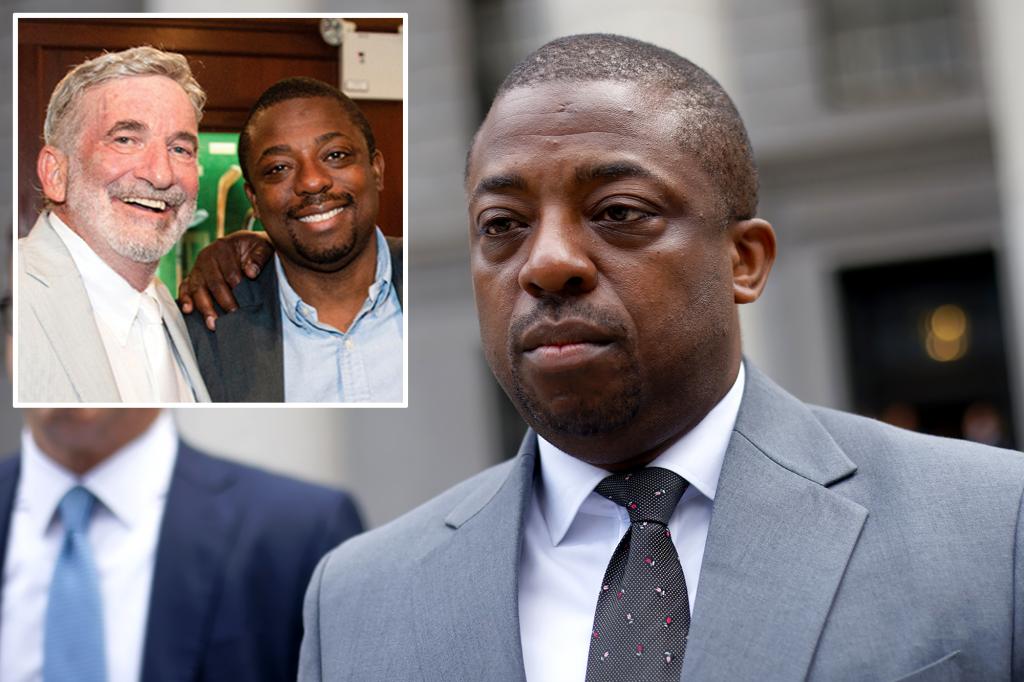The abrupt dismissal of corruption charges against former New York Lieutenant Governor Brian Benjamin marks a dramatic turn in a case that once threatened to further destabilize the already turbulent political landscape of New York State. The charges, stemming from an alleged bribery scheme involving campaign donations and state grants, were dropped following the death of a key witness and co-defendant, real estate developer Gerald Migdol. Migdol’s passing effectively dismantled the prosecution’s case, leaving them unable to prove beyond a reasonable doubt that Benjamin had engaged in the alleged quid pro quo arrangement. This unexpected development underscores the fragility of legal proceedings that rely heavily on witness testimony, especially in complex cases involving political figures.
The crux of the accusations against Benjamin revolved around his alleged involvement in directing state funds to Migdol in exchange for campaign contributions. Prosecutors had contended that Benjamin, while serving as a state senator, used his influence to secure a $50,000 state grant for a non-profit organization controlled by Migdol. In return, Migdol allegedly orchestrated a series of small, individual donations to Benjamin’s campaign, a tactic designed to circumvent campaign finance regulations. These donations, prosecutors argued, were strategically structured to maximize matching funds from the New York City Campaign Finance Board, thereby amplifying the financial benefit to Benjamin’s campaign. The alleged scheme presented a classic scenario of political corruption, where public funds were purportedly leveraged for personal gain, undermining the integrity of the democratic process.
Migdol’s cooperation with the prosecution was pivotal to their case against Benjamin. Prior to his death in February 2024, Migdol had pleaded guilty to bribery charges, effectively admitting his role in the alleged scheme. This guilty plea, coupled with his expected testimony against Benjamin, formed the cornerstone of the prosecution’s strategy. Migdol’s death, therefore, dealt a fatal blow to the case, depriving the prosecution of their primary witness and leaving them with insufficient evidence to proceed with the charges against Benjamin. The prosecution’s acknowledgment that they could no longer meet the burden of proof “beyond a reasonable doubt” highlights the critical role Migdol played in their case.
The dismissal of the charges represents a significant victory for Benjamin, who has consistently maintained his innocence. His legal team hailed the decision as a vindication, invoking Martin Luther King Jr.’s famous quote about the arc of the moral universe bending towards justice. They emphasized that the charges were baseless and that Benjamin had been wrongly accused. The swift collapse of the case following Migdol’s death raises questions about the strength of the evidence against Benjamin and the extent to which the prosecution’s case relied solely on Migdol’s testimony. The case also highlights the potential pitfalls of relying on cooperating witnesses, whose credibility and availability can be unpredictable.
Benjamin’s appointment as Lieutenant Governor by Governor Kathy Hochul in 2021 was seen as a significant step in his political career. His selection came in the wake of Andrew Cuomo’s resignation amidst a flurry of scandals, and Benjamin was viewed as a rising star within the Democratic Party. However, the corruption charges brought against him in 2022 forced him to resign from his position, effectively derailing his political trajectory. The subsequent dismissal of the charges now opens the door for potential rehabilitation of his political career, although the lingering shadow of the allegations may continue to impact his future prospects.
The Benjamin case offers a compelling study of the complexities and uncertainties inherent in legal proceedings, particularly those involving high-profile individuals and allegations of political corruption. The case underscores the crucial role of witness testimony in building a successful prosecution and demonstrates the devastating impact the loss of a key witness can have on a case. The dismissal of the charges, while a victory for Benjamin, raises broader questions about the prosecutorial process and the potential for wrongful accusations to damage reputations and careers, even in the absence of a conviction. The case serves as a stark reminder of the delicate balance between pursuing justice and protecting the rights of the accused.


